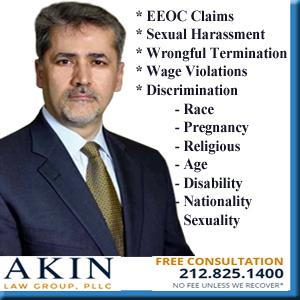- posted: Jun. 09, 2016
- Employment Law, Sexual Harassment, Disability Discrimination, Gender Discrimination, Age Discrimination
On January 5, 2016, New York City Mayor Bill de Blasio signed into law legislation prohibiting employment discrimination based on an individual’s actual or perceived status as a caregiver.

A “caregiver” is defined as “a person who provides direct and ongoing care for a minor child or care recipient.” A “care recipient” is a person with a disability who is a covered relative, or a person who resides in the caregiver’s household, and who relies on the caregiver for medical care or to meet the needs of daily living. A “covered relative” is further defined as a caregiver’s child, spouse, domestic partner, parent, sibling, grandchild or grandparent, or the child or parent of the caregiver’s spouse or domestic partner, or any other individual in a familial relationship with the caregiver, as designated by the City Commission on Human Rights.
The amendments protecting caregivers from discrimination are intended to prohibit employers, employment agencies or labor unions from refusing to hire, or from rejecting, excluding, terminating, demoting, refusing to promote or otherwise treating individuals unfavorably in their terms or conditions of employment because they have caregiver responsibilities.
Prohibited Actions
Employers cannot consider an employee’s caregiving responsibilities from any decision-making about whether to hire, promote, terminate, or otherwise affect the terms and conditions of employment.
The New York City Human Rights Law bans employment discrimination based on age, race, creed, color, national origin, gender (including gender identity and sexual harassment), disability, marital status, partnership status, sexual orientation, alienage, citizenship status, any lawful source of income, status as a victim of domestic violence or as a victim of sex offenses or stalking, and arrest and conviction status.
Contact the Akin Law Group for Legal Help
If you have experienced caregiver discrimination in your workplace, contact the employment lawyers at the Akin Law Group at 866.685.5163 to schedule a free consultation. Our employment lawyers will listen to the details of your discrimination case to determine whether filing a lawsuit is the right choice for you.



